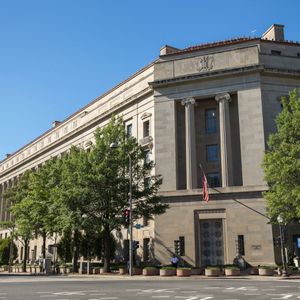The U.S. Department of Justice is sending a message with its recent effort to seize $225 million in crypto tied to pig butchering scams: these funds were stolen from victims. At least, that's the takeaway from Phil Selden, a member at Cole Schotz PC and former acting US Attorney for the District of Maryland. The DOJ moved to seize these funds last month through a forfeiture motion, although it has yet to publicly identify any individuals accused of stealing the funds. But that's the point, Selden said. "This is a tone-setting case," said Selden, who's now a member at law firm Cole Schotz PC. "We have victims on American streets, and the Department made clear they didn't want to wait for an arrest to actually ensure that the crypto was actually seized." This tone, Selden said, sets the direction for the Department of Justice under Matthew Galeotti, the new head of its criminal division. Selden describes Galeotti as an experienced, methodical prosecutor used to taking down New York's toughest organized crime rings. Galeotti, Selden said, understands how criminal networks move money, how they exploit weak regulatory frameworks, and most importantly, how they hurt everyday people “This isn't just a tech story or a finance story," he continued. "It's a story about families losing their savings, and small towns losing their banks.” That small town bank was Heartland Tri-State Bank, a Kansas-based agricultural lender that became illiquid and collapsed in 2023 after its CEO, Shan Hanes, embezzled nearly $50 million and moved the funds to crypto wallets at the direction of pig butchering scammers. Hanes was also the largest victim in the DOJ's complaint. “In Hong Kong or Shanghai or New York or San Francisco, there's a financial institution on every corner. In Kansas, there's not,” Selden said. "If you don’t have a good bank, it’s hard to build or maintain a business, it's hard to get capital for that tractor or that crop cycle.” What comes next? Selden anticipates that criminal charges are on the horizon, but he thinks the DOJ didn't want to wait for an arrest to ensure the crypto was seized and could be returned to its owners. Extradition of overseas suspects is one possible path, he explained, though it's a slow and complicated process that relies on mutual legal assistance treaties. Another strategy could involve luring suspects into U.S. jurisdictions where arrests are easier to carry out, such as Guam or other American territories. Even without arrests, extraditions, and high-profile trials, Selden believes the case has already done its job. It sends a message to victims that their losses are being taken seriously. “Crypto crime isn’t abstract; it isn’t offshore,” Selden said. “It’s impacting real people, real communities, and the Department of Justice wants Americans to know it has their backs.”















